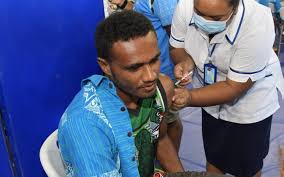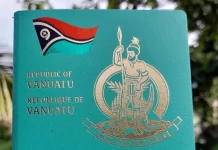So far, with the help of development partners, in particular Australia and New Zealand, the vaccine rollout in the Pacific islands has exceeded expectations.
Fiji (the Pacific islands’most populous country) aims to vaccinate 53% of its adult population (one dose each for about 316,000 people)by the end of June and have all adults fully vaccinated by October 2021. Vanuatu, Samoa, Tonga, Kiribati, Solomon Islands and Cook Islands have all commenced their vaccination programmes. Cook Islands is most advanced,and expects to have about 95% of the adult population in Rarotonga and Aitutaki fully vaccinated by the end of June.
With optimism on vaccine deployment rising, ‘herd immunity’ could be reached before the end of the year, and international tourism may return to the Pacific islands in late 2021 and build momentum into 2022.
However, risks remain. On the positive side, a quicker rollout of vaccines to 80–85% of the adult population could see international borders reopen earlier.
Furthermore, many Pacific island countries have not had any community transmission of the virus. So travel bubbles, where quarantine-free travel between countries or regions with low or no incidence of COVID-19 could be implemented before herd immunity is achieved.
The Cook Islands and New Zealand have already established a safe travel corridor.Naturally, if a safe travel corridor can be implemented, then tourism could return sooner, which would be a welcome economic boost. However, Fiji’s recent community outbreak has probably delayed a safe travel zone with neighbours Australia and New Zealand to later in the year.
On the downside, setbacks on vaccine efficacy (ie approved vacccines are unable to neutralise new variants) will keep borders shut for longer and delay the economic recovery.
SOURCE: ANZ INSIGHT/PACNEWS















